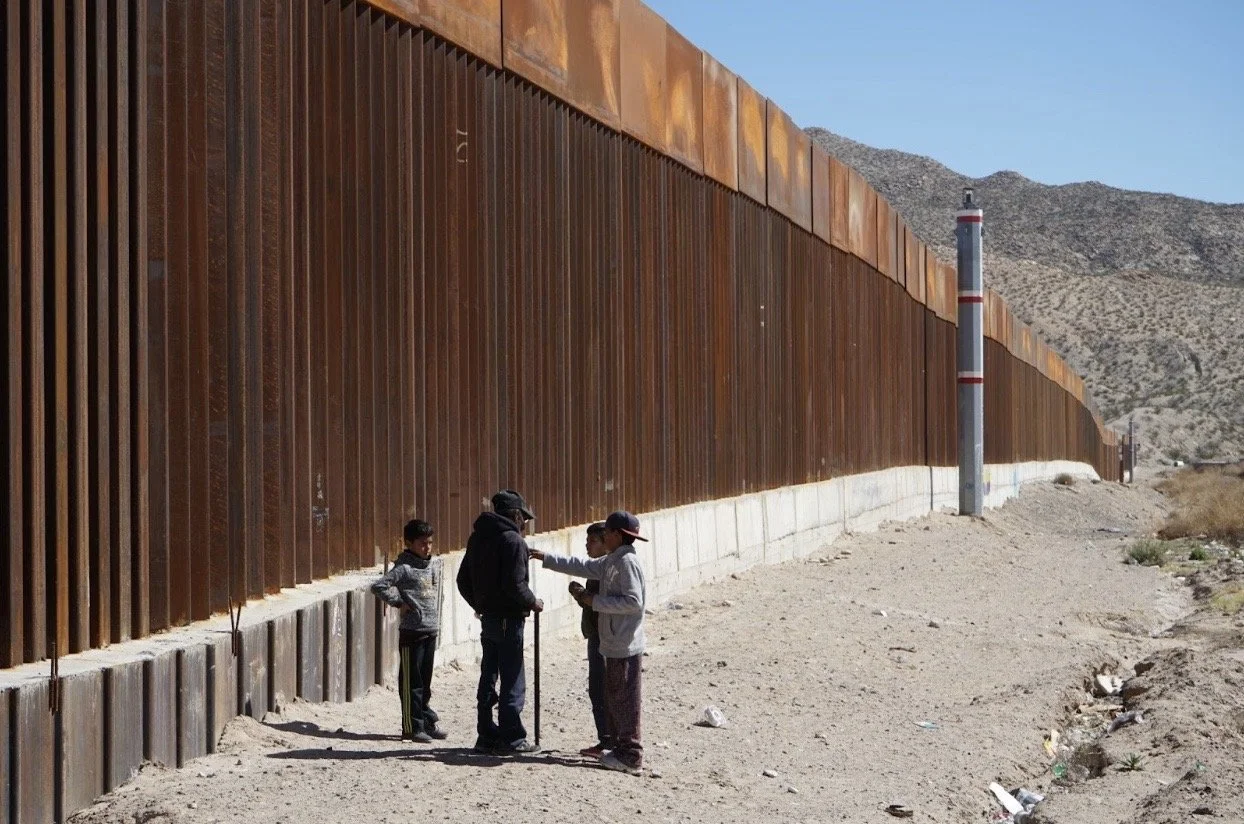Many are used to election years bringing highly controversial topics to the forefront of social media and news outlets. It is easy to step back from the political conversations, but what happens when this leaves few advocates for highly impacting causes?
Currently, the US-Mexico border has been experiencing escalating tensions, and Americans have taken notice. With the assumption of front-runners being Joe Biden and Donald Trump, a recent poll in the Wall Street Journal highlighted the importance voters placed on the 2024 presidential candidates’ immigration policies. This poll suggested that 13 percent of respondents chose immigration as the most important issue when voting in November of 2024, becoming the second-most relevant issue, only ranked 8 points behind the economy. A large percentage of these voters also claim to refuse to vote at all if the candidates do not provide immigration policies that align with their immigration views. Further, only 27 percent of voters approve of current border security policies by President Joe Biden, while a minimal 7 percent strongly approve. This is in contrast to 64 percent of those who disapprove or strongly disapprove of President Joe Biden’s border security handling. Conversely, 54 percent of respondents polled that Donald Trump would be best able to secure the border, 24 percent voted for Biden, and 15 percent voted neither (Arthur, 2023).
Trump has expressed that Biden’s biggest weakness is border security, which is part of why he has received an endorsement from Texas Governor Greg Abbott. This endorsement has caused larger issues in terms of security for immigrants seeking asylum or refugee status from the US-Mexico border.
Particularly, Eagle Pass, Texas has seen a lot of conflict between Texas authorities and federal border security officers during the start of 2024. The feud became more intense on January 10th, when Texas authorities blocked US Border Patrol agents from a 2.5-mile area that has seen more migrant crossings recently across the Rio Grande and Shelby Park. Border patrol entry to this area has been blocked by razor wire and gates, making migrant treatment and security up to Texas officials, who have been accused of mistreating migrant women and children. This allegation came more to light on January 12th, when two children and a mother drowned in a nearby area. Fingers are being pointed both ways to blame both parties for these unfortunate casualties. Although this constitutes an emergency, border security officials were not allowed into the area to further investigate. Following this back-and-forth, it was not until January 22nd that the Supreme Court voted 5-4 to allow Border Patrol agents to remove the razor wire blockades. Regardless, on January 29th, over two dozen attorneys wrote to President Joe Biden, expressing support for the state of Texas’ border security decision (Yan et al., 2024).
Within the legislative level, this is only one of many examples of disagreements and life-threatening issues occurring at the border. When political decisions are not made conjunctively, it has greatly impacted those with less favorable socioeconomic conditions. Focusing on the border crisis, the people affected are those already displaced from various countries. In 2021, it was reported that 63% of all encounters at the US-Mexico border were with people of non-Mexican nationality. Latin Americans from Central, South, and Caribbean North America all largely fell into this high percentage. When people already displaced from their unsafe native countries are faced with conditions in which the American government jeopardizes their safety even more, it escalates the gravity and vulnerability of their situation.
Circling back to the election year impact, it is healthy to question policies being stated by the 2024 presidential candidates. Specifically, advocating for immigration reform and pressuring state and local representatives to put a hand in immigration politics is a way to take action against the violence on migrants from the comfort of your home. Additionally, contributing to grassroots and non-profit organizations that are fundraising for this cause is another way to sidestep the harmful political climate in aid of the impacted migrants. During this time, GRMR has decided to support Border Angels, an organization focused on social justice, humane immigration reform, and human rights. If you do not know where to begin, I suggest paying careful attention to the candidate you vote for, making a call to your local or state government, and/or extending your support to Border Angels individually or through GRMR.
References
Arthur, A. R. (2023, December 14). Trump v. Biden on the Border. Center for Immigration Studies. Retrieved February 6, 2024, from https://cis.org/Arthur/Trump-v-Biden-Border
Yan, H., Flores, R., & Weisfeldt, S. (2024, January 27). US-Mexico border timeline: Texas blocks federal patrol agents at Eagle Pass. CNN. https://www.cnn.com/2024/01/27/us/texas-eagle-pass-us-mexico-border/index.html

